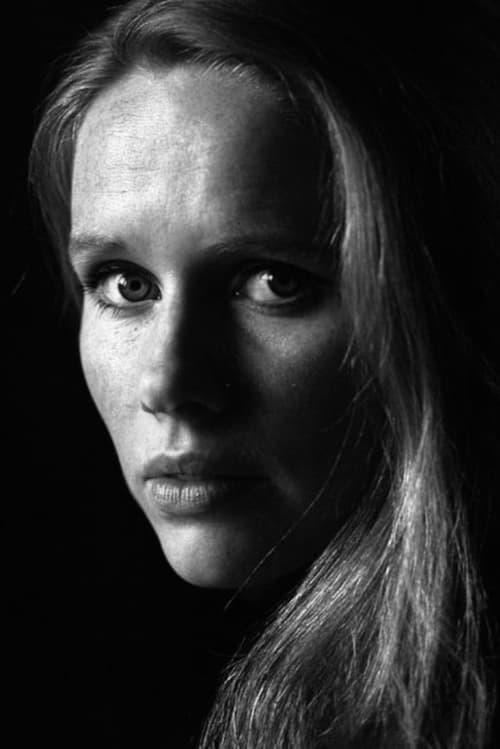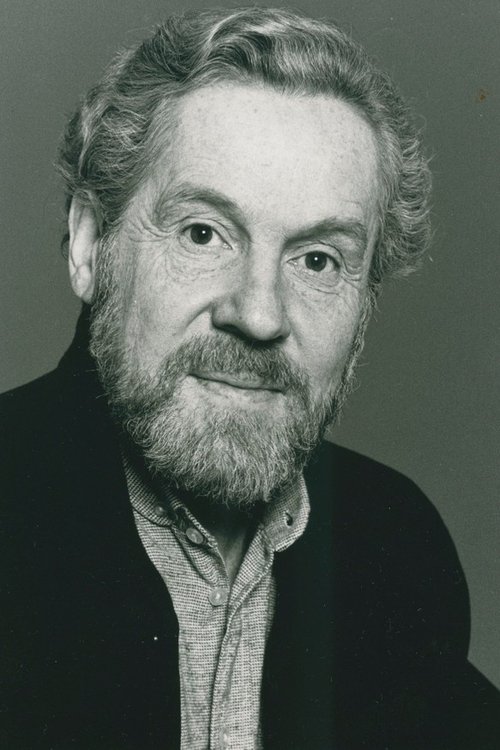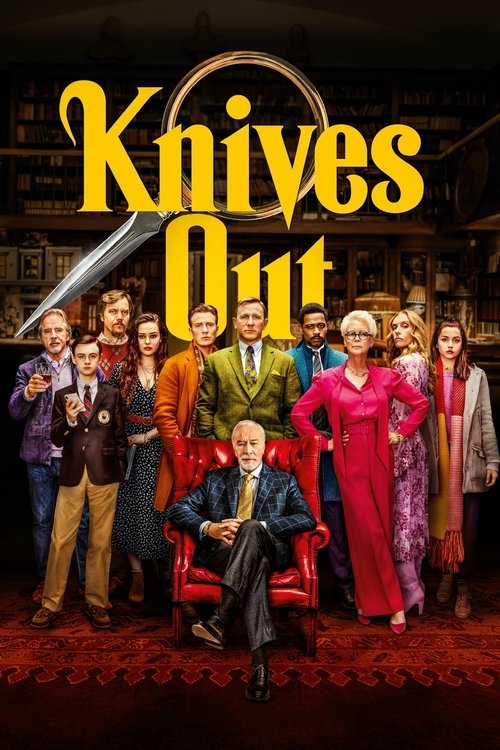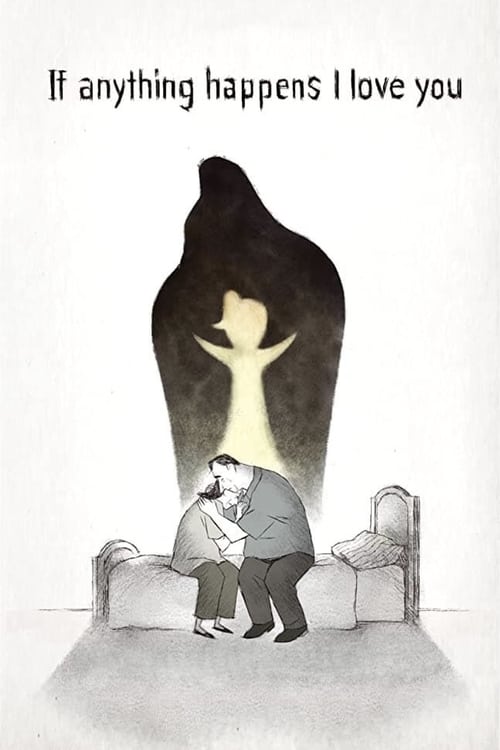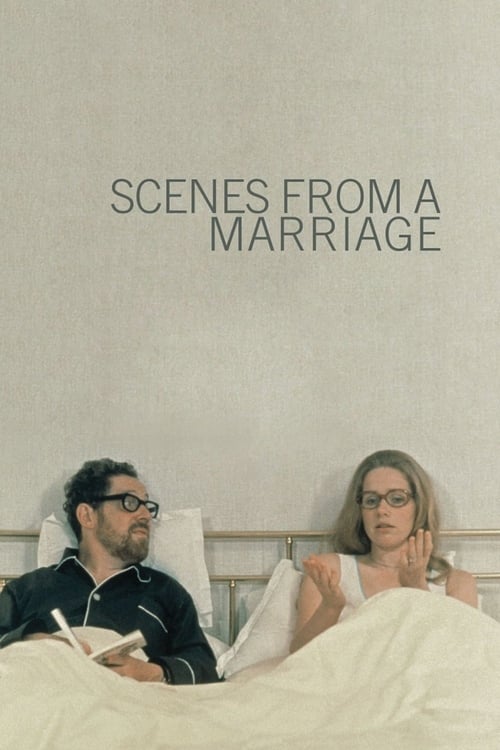
Scenes from a Marriage
Johan and Marianne are married and seem to have it all. Their happiness, however, is a façade for a troubled relationship, which becomes even rockier when Johan admits that he's having an affair. Before long, the spouses separate and move towards finalizing their divorce, but they make attempts at reconciling. Even as they pursue other relationships, Johan and Marianne realize that they have a significant bond, but also many issues that hinder that connection.
Dialogues from Movie Scenes from a Marriage
Memorable Scenes from Movie Scenes from a Marriage
The Confrontation
In a passionately charged moment, Johan and Marianne face each other in their living room. They've been through a major fight and emotions are running high. Johan accuses Marianne of being controlling, while she insists that he’s emotionally detached. The pivotal moment occurs when Johan reveals his desire to leave the marriage, unleashing a torrent of feelings they’ve both buried. Marianne’s reaction shifts from disbelief to heartbreak, and the room feels tense with unspoken words. This scene marks a turning point, showing how fragile their relationship has become. After this confrontation, their marriage is irrevocably altered; both characters begin exploring other paths, losing themselves in the chaos of separation. The emotional weight of this scene strikes viewers hard, leaving them to feel the pain of broken bonds and shattered dreams.
Context: This moment happens after a series of small arguments that lead to bigger issues regarding trust and communication. The stakes are raised because both characters are at a crossroads in their relationship.
The Dinner Party
At a dinner party, Johan and Marianne try to appear calm on the outside while tension simmers beneath. Friends around the table discuss love and relationships, oblivious to the cracks forming in Johan and Marianne’s marriage. The pivotal moment arrives when one of their guests asks Johan about his future plans, and he hesitates, glancing at Marianne who silently encourages him to speak the truth. He awkwardly admits deep fears about his commitment, casting an unsettling shadow over the evening. The quiet tension spills over as Marianne’s face shows hurt, and the others slowly sense that something is amiss. The aftermath sees their social circle becoming divided as guests react to the palpable discomfort, mirroring the disintegration of Johan and Marianne’s shared life. This scene leaves viewers feeling the awkwardness of unspoken truths and the fragility of appearances.
Context: This scene is set in a casual social environment, yet it reveals deeply held resentments and uncertainties in Johan's and Marianne's relationship, highlighting the theme of disconnection.
The Heartfelt Conversation
In a quiet moment, Johan and Marianne sit on the couch reflecting on their life together. The tension from earlier scenes melts away as they share vulnerable stories about their dreams and disappointments. Marianne recalls a time before their marriage when she felt free and adventurous, and Johan listens intently, revealing his own struggles with identity and purpose. The pivotal moment arrives when Marianne admits she feels lost in their marriage and fears she's losing herself. Johan, moved by her confession, acknowledges his own fears, leading to a mutual understanding. The aftermath is profound; they attempt to reconnect on a deeper level, leading to promises of transparency and honesty. The emotional resonance of this scene offers viewers hope amid turmoil, resonating with anyone who’s faced similar relationship struggles.
Context: This moment occurs after several arguments but before their decision to separate, making it a crucial moment of vulnerability that contrasts with their conflict.
The Unexpected Reunion
Years later, Johan and Marianne unexpectedly meet at a café, both changed by time and experience. They exchange pleasantries, but the nostalgia and unresolved feelings linger in the air. The pivotal moment comes when a chance encounter reveals the depth of their emotional scars—Johan mentions his new life, casually dropping that he has a daughter. Marianne's expression shifts from happiness to shock, as memories of their own dreams come rushing back. This moment forces them to confront the reality of their choices. The aftermath shows their conversation transitioning from small talk to addressing their past; it’s both painful and cathartic. Viewers feel a mix of sadness and warmth, reflecting on lost opportunities and the passage of time, highlighting the complexities of love and loss.
Context: Set several years after their separation, this scene marks a bittersweet reunion that serves as a testament to how life moves on, yet the past remains an indelible part of their lives.
The Final Goodbye
In a raw and emotional scene, Johan and Marianne stand in front of their home for what feels like the last time. The air is thick with unsaid words and finality. The pivotal moment occurs as they share one last, lingering embrace before stepping away from each other. Their eyes glisten with tears, and they exchange bittersweet smiles, acknowledging the love that still exists despite their separation. This moment encapsulates the heart-wrenching choice they must make to let go. The aftermath sees both characters walking away in different directions, symbolizing the new paths they must take. This scene evokes deep feelings of heartbreak, resonating with viewers who have faced similar farewells, serving as a powerful reminder of love’s enduring complexity.
Context: This occurs at the end of the film, solidifying the themes of departure and the bittersweet nature of love, encapsulating their journey together and apart.
The Emotional Outburst
During an intense argument, Johan finally breaks down, his voice trembling as he reveals his fears of inadequacy and the weight of expectations. The pivotal moment hits when he shouts that he feels trapped in a life that doesn’t feel true to him. Marianne, shocked, turns the argument back on him, revealing her pain at being constantly overshadowed by his needs. Their shouting matches transition into tears and vulnerability, exposing their raw emotions. After this explosive scene, they both realize how their pain comes from love, but also from misunderstanding each other. Viewers are left in shock and sympathy, understanding the complexities of their relationship. This moment encapsulates the destructive potential of unchecked emotions and the necessity of true communication.
Context: This scene builds upon their earlier conversations, showing how frustration and hurt can escalate, revealing that their conflict stems from love, not hate.
The Memory of Love
In a quiet flashback, Johan and Marianne are seen at the beach, laughing and carefree. It’s a stark contrast to their current struggles. The pivotal moment arrives when they share a significant kiss, the joy evident in their eyes. This moment emphasizes innocence, love, and the promise of happiness. The audience is made to feel the stark difference between this blissful moment and their troubled present. The aftermath is heavy; it serves as a reminder of what once was, deepening the audience's emotional investment in their characters. This scene evokes nostalgia and longing, reinforcing the theme of love’s ebbs and flows across time.
Context: This flashback provides a crucial context for the audience, helping them understand the foundation of Johan and Marianne's relationship and the changes they have undergone.
The Breaking Point
In a confined space of their shared home, tension builds to its peak as Johan reveals he’s met someone new. Marianne's reaction is one of disbelief, shock quickly transforming into anger. The pivotal moment arrives when she snaps, questioning his loyalty and love. Her tsunami of emotions sweeps through the room, drowning out reason. After this confrontation, the atmosphere shifts irreparably; both characters stand on the precipice of their relationship's demise. This scene encapsulates the pain of betrayal and the rawness of their emotions, resonating deeply with the audience. Viewers feel the weight of Marianne’s heartbreak and Johan’s guilt, and it contributes significantly to the themes of fidelity and the complexities of love.
Context: This moment comes after Johan's denial about his emotional distance, heightening the stakes and revealing the cracks in their bond.
Intimacy Rekindled
In a surprising moment of tenderness, Johan and Marianne find themselves alone, reminiscing about their life. Laughter fills the air as they share old inside jokes with genuine warmth. The pivotal moment arrives when they accidentally touch hands, sparking an undeniable electricity. Their eyes meet, and for a brief moment, it feels like old times. After this scene, both characters are left grappling with feelings they thought were long gone—feelings of affection and yearning. The emotional nuance tugs at the viewers’ heartstrings, reminding them how intimacy can re-emerge unexpectedly. This scene shines a light on love’s endurance, despite the chaos surrounding it.
Context: This moment occurs amid their struggles, showcasing how deep connections can re-surface, even in the most complicated situations.
The Silent Treatment
Johan and Marianne sit across from each other in silence in their living room, the air thick with unspoken words. It's a powerful moment where the absence of communication speaks volumes. The pivotal moment is marked by Marianne dropping a glass, breaking the stillness, a metaphor for their fractured relationship. Each character reflects their feelings without dialogue—disappointment, anger, and a sense of yearning. After this moment, the audience feels the heavy weight of unresolved conflict; it encapsulates the moments in relationships when words fail. Viewers often feel angst and pain, recognizing the struggle of wanting to connect but feeling unable to. This scene highlights a profound truth about relationships—the silence can sometimes be louder than words.
Context: Set after a heated argument, this scene emphasizes the pain caused by lack of communication and its impact on their dynamic.
The Reconciliation
In a pivotal moment of vulnerability, Johan and Marianne sit facing each other, hearts wide open. They discuss their flaws and the disappointments that have brought them to this point. The turning moment arrives when they both apologize for their actions in a sincere exchange, tears marking their cheeks. After this moment, it feels as if a weight has been lifted. They embrace cautiously, signaling the start of healing, both in their relationship and individually. Viewers are filled with hope and warmth, feeling the power of forgiveness and understanding. This moment encapsulates the film’s core theme of love’s ability to endure and heal.
Context: This scene occurs after significant turmoil, setting a critical context that highlights the importance of communication and emotional honesty.
The Choice of Freedom
In a poignant scene, Johan and Marianne discuss the difficult decision of whether to part ways or attempt to stay together. The pivotal moment comes when Marianne mentions ‘freedom’ and how it terrifies her yet feels necessary. The weight of her realization hits hard, seen in her trembling voice as she expresses a desire to reclaim her own identity. This leads them into an intense conversation about love versus independence. The aftermath leaves viewers heartbroken yet relieved, as it symbolizes the complex relationship between love and personal freedom. Emotions run high, evoking feelings of both sorrow and empowerment, resonating with anyone who understands the struggle of balancing love with individuality.
Context: This moment follows a long pattern of both characters feeling trapped, offering a critical exploration of individuality and relationships.
The Last Look
In a heart-wrenching final moment, Johan and Marianne stand together for one last look before parting ways. It’s understated yet heavy with meaning. The pivotal moment occurs as they exchange glances filled with both love and sorrow. Words fail them, and in silence, they communicate a lifetime of shared memories and unresolved feelings. The aftermath leaves both characters transformed, having come to terms with their past while facing their uncertain futures apart. Viewers are left with a bittersweet feeling, recognizing the beauty and tragedy of their journey. This concluding moment encapsulates the essence of their relationship, making it a lasting image in the hearts and minds of the audience.
Context: Set as a closing scene representing the culmination of their journey, it solidifies the film’s themes of love, loss, and moving on.
The Awakening
Johan wakes up in the early morning light, looking around vacant spaces that once felt alive with Marianne's presence. He wanders through their home filled with echoes of the past. The pivotal moment strikes when he finds an old photo of them, a moment frozen in happiness. Emotions flood back, and he’s confronted with the weight of their shared history. After this moment, he realizes that he must confront his own life choices and the essence of who he is. This scene hits viewers with a mix of nostalgia and melancholy, reminding them how past loves shape our current realities. It powerfully reflects the theme of internal struggle amid external change.
Context: This scene occurs at a point where Johan begins to reflect on their relationship and what it meant for his identity.
The Splitting Path
As Johan and Marianne sit across from each other, they confront their diverging paths in life. This identical yet separate experience encapsulates their emotional turmoil as they grapple with what lies ahead. The pivotal moment manifests when they realize they might be happier apart than together, and both feel the weight of that truth. After this heartbreaking realization, they slowly but surely acknowledge the necessity of change. The viewers experience relief mixed with sadness; understanding that sometimes love isn’t enough to keep two people together. This scene encapsulates the painful truth about relationships, making it resonate deeply.
Context: This occurs after they've tried to patch things up but realize they can’t go back. It’s crucial in leading them toward the eventual decision to separate.
The Time Apart
The screen shows a series of brief moments with both Johan and Marianne apart, their lives unfolding in different directions. Each montage clearly indicates their emotional struggles, captured poignantly. The pivotal moment arrives when they each encounter new people in their lives, illustrating the journey of healing while still reminiscing. It serves as a showcase of their growth without each other, marked by bittersweet highs and lows. After this montage, both characters seem more mature, presenting an inner struggle that evokes a sense of hope. This scene leaves viewers reflecting on the resilience of the human spirit in the face of loss, aligning deeply with the film's explorative themes.
Context: This scene illustrates the passage of time after their separation, emphasizing the importance of self-discovery and healing.
Download App
Behind the Scenes from Movie Scenes from a Marriage
The Gripping Script Revisions
Ingmar Bergman initially envisioned 'Scenes from a Marriage' as a six-part miniseries but later condensed it into a film format. This entailed significant script revisions to streamline the narratives.
Why it matters: The tight narrative focus allowed for a more intense exploration of relationships, enhancing the emotional depth and urgency of the characters' experiences, a hallmark of Bergman's filmmaking style.
Shooting in Real Time
Bergman employed a unique shooting style that included long takes, often filming entire scenes in real-time without cuts.
Why it matters: This technique created a sense of authenticity and immediacy, immersing viewers in the unfolding drama, which brilliantly captures the complexities of marital discourse.
The Casting Process
Liv Ullmann and Erland Josephson were cast for their chemistry after Bergman saw them in a previous production, which influenced the film’s dynamic depiction of marriage.
Why it matters: Their authentic chemistry contributed significantly to the audience's connection to the characters, making their struggles and triumphs relatable and emotionally impactful.
Episodes versus Feature Film
Originally intended to air on television, the transition to a feature film format caused Bergman to rethink pacing and visual style.
Why it matters: The cinematic adaptation allowed for richer cinematography and deeper character exploration, which elevated the film’s narrative and visual storytelling to a new level.
Improvised Moments
Many dialogues during the film were improvised, allowing actors to bring their own interpretations to the complex emotional scenes.
Why it matters: This spontaneity added a layer of realism and spontaneity that enhanced character development, making the portrayal of marital conflict all the more authentic.
Real-Life Inspiration
Bergman’s own experiences with love and marriage served as significant inspiration, which he candidly explored through his characters.
Why it matters: This personal touch imbued the film with a raw emotionality that resonates across generations, deepening the audience's engagement with the characters’ turmoil.
The Use of Color
'Scenes from a Marriage' was filmed in a muted color palette, which reflected the somber themes and emotional landscape of the narrative.
Why it matters: The visual style supported the film's themes of despair and hope, subtly influencing the audience's emotional response to the characters' journey.
The Subtle Sound Design
Sound design played a crucial role in conveying the mood, with silences and background noise carefully curated to enhance tension between characters.
Why it matters: This focus on sound crafted an evocative atmosphere that heightened audiences’ perception of intimacy and conflict, making the viewing experience more profound.
Bergman's Unique Directorial Approach
Bergman’s directorial style was heavily collaborative, frequently involving actors in discussions about their characters' motivations.
Why it matters: This collaborative spirit fostered a supportive environment that allowed actors to explore vulnerabilities, resulting in nuanced performances that resonated deeply with the audience.
The Resilient Themes
Themes of love, betrayal, and reconciliation were not only central to the narrative but also reflective of societal changes in the 1970s.
Why it matters: The relevance of these themes has contributed to the film’s status as a timeless exploration of human relationships, appealing to varied audiences over decades.
Final Scene’s Symbolism
The ending, which features the main characters reflecting on their relationship, was crafted to symbolize acceptance and moving forward.
Why it matters: This poignant conclusion invites viewers to contemplate their own relationships, making it a memorable and thought-provoking closing that lingers long after the film has ended.
Cultural Impact of the Miniseries
The miniseries’ original broadcast was met with critical acclaim, leading to discussions on marriage dynamics that extended beyond the screen.
Why it matters: By sparking public discourse on marriage and relationships, the film’s cultural impact elevates it beyond mere entertainment into a significant societal commentary.
Behind the Camera Dynamics
Bergman had disputes with his cinematographer over the right visual style, leading to innovative solutions that shaped iconic visual sequences.
Why it matters: These conflicts ultimately led to a unique aesthetic that distinguished the film, blending mood and narrative in a manner that has influenced filmmakers since.
Longevity of Relevance
Despite its release decades ago, 'Scenes from a Marriage' continues to be referenced and studied in relation to modern relationships and marital discord.
Why it matters: Its continued relevance speaks to the universality of its themes, solidifying its legacy as a crucial touchstone in cinematic explorations of marriage and intimacy.
Download App


